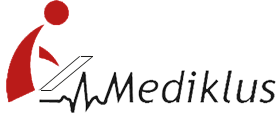What Is SEO? Search Engine Optimization Best Practices
Even a basic understanding of how to manage your own SEO efforts can pay off in the long run, making it easier to take quick actions to maintain your site. SEO is important because a majority of searchers don’t make it past page one of the search results. The better visibility you have in search engines and the higher you rank, the more likely that you’ll connect with the right audiences for your brand. You learned what SEO is and the history of search engine updates. You also learned about backlinks, user experience and how to measure your results.
This is especially important when it comes to rich snippets and it’s a great way to instantly boost your content to the top. H2 headings should include your keyword and be used to organize major themes, while H3s and H4s are for introducing smaller concepts. Content alone does not attract people to your website if it is not well-researched and optimized. Think about how you can create something interesting that has the potential to be shared, while also being easy for Google to understand. Your content will do nothing for your SEO if it is not engaging, valuable, and attention-grabbing.
- …so that when someone searches for something related to your business, your website appears on page 1.
- Fortunately, every major keyword research tool on the market, like Semrush, has a keyword difficulty score that takes the first page competition into account.
- So they’ll have a headline, post snippet and a Click here or Read more button in a vertical line.
- …and you’ll get a score along with a list of detailed recommendations.
All you need to do is enter a broad topic (like “keto” or “link building”). If your content is better or brings something new to the table, you have a good chance of getting a link from people that already linked to a piece of similar content. Which is why I recommend using at least 4-5 internal links for every post that you publish.
Customer Data& Privacy
To achieve high rankings on search engines, an SEO specialist or SEO manager may use a number of different strategies that involve both content and technical SEO. If your business does not have a website, there is a high chance that you could be missing out on all the benefits that ranking on search engines can offer your business. If you do own a website, having a distinct online presence offers more opportunities to increase the visibility of your business online, among many other benefits.
Want to learn how to use SEO to grow your website traffic? Check out our video:
At PageCloud, we use the list feature within Ahrefs Keyword Explorer to help manage and provide data for the large number of keywords we’re tracking. You can experiment with buying search ads for your own business if you have the budget. Ranking organically is extremely cost-effective, but typically requires a greater investment of time and continued effort. That includes speaking to user intent—what someone wants to get out of a search.
It was (and still is) the most complete guide to link building out there. Well, you need to figure out why people link to specific pieces of content in your industry. A while back I noticed that most content about “SEO tools” only listed tools.
If you want to dive deeper into keyword research, you can check out this video. So even though long tails have relatively low search volume levels, they’re much easier to rank for. These usually make great keywords for SEO because they come straight from Google.
Then, create content—articles, videos, presentations and other online assets—to answer those questions. First, a backlink from a BHS Links highly trusted website signals some level of approval and validation, so website visitors are more inclined to view your website in a positive light. Second, highly trusted websites are considered to have more SEO weight as measured by Domain Authority. A backlink from a high Domain Authority website like CNN or the New York Times is more powerful than a backlink from a website created last week. In the late 1990s and early 2000s, SEO was simple for companies to manipulate. Just put your keywords all over your website again and again, and you’ll probably get traffic.
In other words, you don’t want to greet people with a giant stock photo that takes up the entire above the fold area of your page. Which is why it’s super important to hook people the SECOND that they land on your website from Google. When someone clicks on your site in the search results, then clicks back to Google, that’s a signal to Google that your page is a BAD fit for that result. …and you’ll get a score along with a list of detailed recommendations. And I quickly noticed that most of the content on the first page were guides. Back in the day I’d write content that I THOUGHT would rank on the first page of Google.
And if your page is high-quality, you’ll naturally rank for that keyword… and lots of others. You’ll see how much of your search traffic comes from branded keywords and how these keywords perform in Google Search. There’s a high chance you can improve the CTR by writing a better title tag and meta description for the page that ranks for the query. Website analytics is a crucial part of search engine optimization. If your content is really great and unique (and it should be for this strategy to work), they may link to it or share it on social media by themselves. First, it’s much more beneficial for your site to acquire long-term links on quality sites because they can keep growing in value over time.
